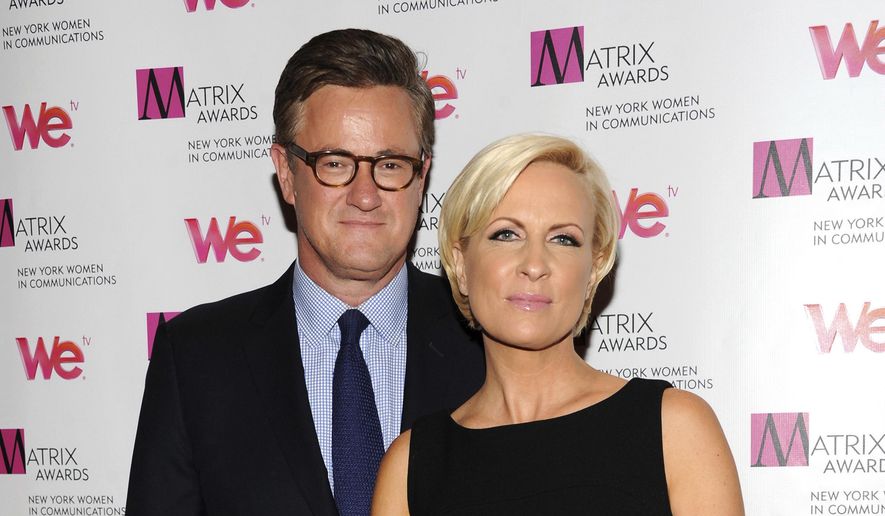In a surprising and symbolic meeting, MSNBC’s “Morning Joe” co-hosts Joe Scarborough and Mika Brzezinski recently sat down with President-elect Donald Trump at his Mar-a-Lago estate. The face-to-face discussion marks their first meeting in seven years, a dramatic shift in tone after years of public hostility between the former president and the media personalities.
From Friends to Foes
When Donald Trump first announced his candidacy in 2015, Scarborough and Brzezinski were initially more receptive to the brash billionaire’s campaign, giving him ample airtime. However, as Trump’s presidency unfolded, their relationship deteriorated into a war of words. Scarborough and Brzezinski became some of his harshest critics, routinely lambasting Trump on their morning show.
From questioning his mental fitness to accusing him of undermining democracy, the duo didn’t hold back. Trump, never one to shy away from confrontation, fired back on Twitter, calling them “low-IQ individuals” and labeling their show “Morning Psycho” and “Morning Crazy.” The hostility reached such a fever pitch that it seemed any chance of reconciliation was impossible.
The Meeting That Turned Heads
Yet, last week, the duo stunned political observers by revealing they had met with Trump for a private discussion at Mar-a-Lago. The meeting, reportedly initiated by Scarborough and Brzezinski, was aimed at “restarting communications” following Trump’s decisive 2024 election victory. Brzezinski acknowledged the meeting as a necessity in the face of a divided nation and their own precarious positions in the media landscape.
“It’s time to do something different,” Brzezinski said in a statement. “We have a responsibility to not only talk about Donald Trump but to talk with him. That’s the only way forward.”
Sources close to the meeting revealed that the conversation touched on controversial topics like abortion, immigration policy, and political retribution. While Trump and the co-hosts didn’t resolve their differences, both sides described the exchange as “cordial” and “constructive.”
Trump himself commented on the meeting, saying, “It was a good talk. I respect their willingness to come to the table. It’s important to have these discussions, even with those who have been so unfair to me.”
The High Stakes for Joe and Mika
For Scarborough and Brzezinski, the stakes couldn’t have been higher. Their years of criticism of Trump aligned with the broader anti-Trump sentiment among their audience. However, Trump’s commanding 2024 victory sent shockwaves through the media, as it became clear that the electorate was increasingly rejecting the narratives pushed by many outlets.
“Joe and Mika realized they were in a precarious position,” said a media analyst. “Trump’s win was so decisive that their continued hostility risked alienating a significant portion of their audience. Meeting with Trump wasn’t just about mending fences—it was about survival in a changing media landscape.”
Indeed, MSNBC and other left-leaning outlets have faced plummeting ratings as viewers gravitate toward alternative sources of news. Scarborough and Brzezinski’s willingness to meet with Trump may be seen as an attempt to adapt to this new reality and remain relevant.
A Chance for Reconciliation or Damage Control?
The reaction to the meeting has been mixed. Supporters of Trump praised the co-hosts for acknowledging the need for dialogue, seeing the move as a rare moment of humility and an effort to bridge divides. Critics, however, accused Scarborough and Brzezinski of hypocrisy, arguing that their sudden change in tone was driven more by desperation than principle.
Scarborough addressed these criticisms directly, saying, “We’re not here to normalize Donald Trump. We’re here to better understand this moment in history and, frankly, to do our jobs better.”
Trump supporters, meanwhile, remain skeptical of the duo’s motives. “This isn’t about unity—it’s about their ratings,” said one observer. “They’ve spent years tearing Trump down, and now they’re scrambling to save face.”
What’s Next?
As the dust settles, the implications of this meeting are profound. It signals not only a potential reset in Trump’s relationship with mainstream media but also a broader reckoning within the industry. The meeting demonstrates that even the staunchest critics must acknowledge political realities and adapt if they hope to remain influential.
For Trump, the meeting is a symbolic victory, reinforcing his narrative of resilience against a hostile press. For Scarborough and Brzezinski, it may be a lifeline—an opportunity to remain relevant in an era where the media’s credibility and survival are increasingly in question.
Whether this meeting marks the start of genuine reconciliation or is simply a pragmatic move to save careers remains to be seen. One thing is certain: in the polarized world of American politics and media, even the unlikeliest of dialogues can reshape the narrative.
Sources
- Fox News: ‘Morning Joe’ co-hosts hold face-to-face meeting with Trump for first time in seven years
- New York Post: Joe Scarborough and Mika Brzezinski meet with Trump: ‘Time to do something different’
- Pew Research Center: Media trust in the U.S. hits record lows
- Politico: The evolution of Trump-media relations

